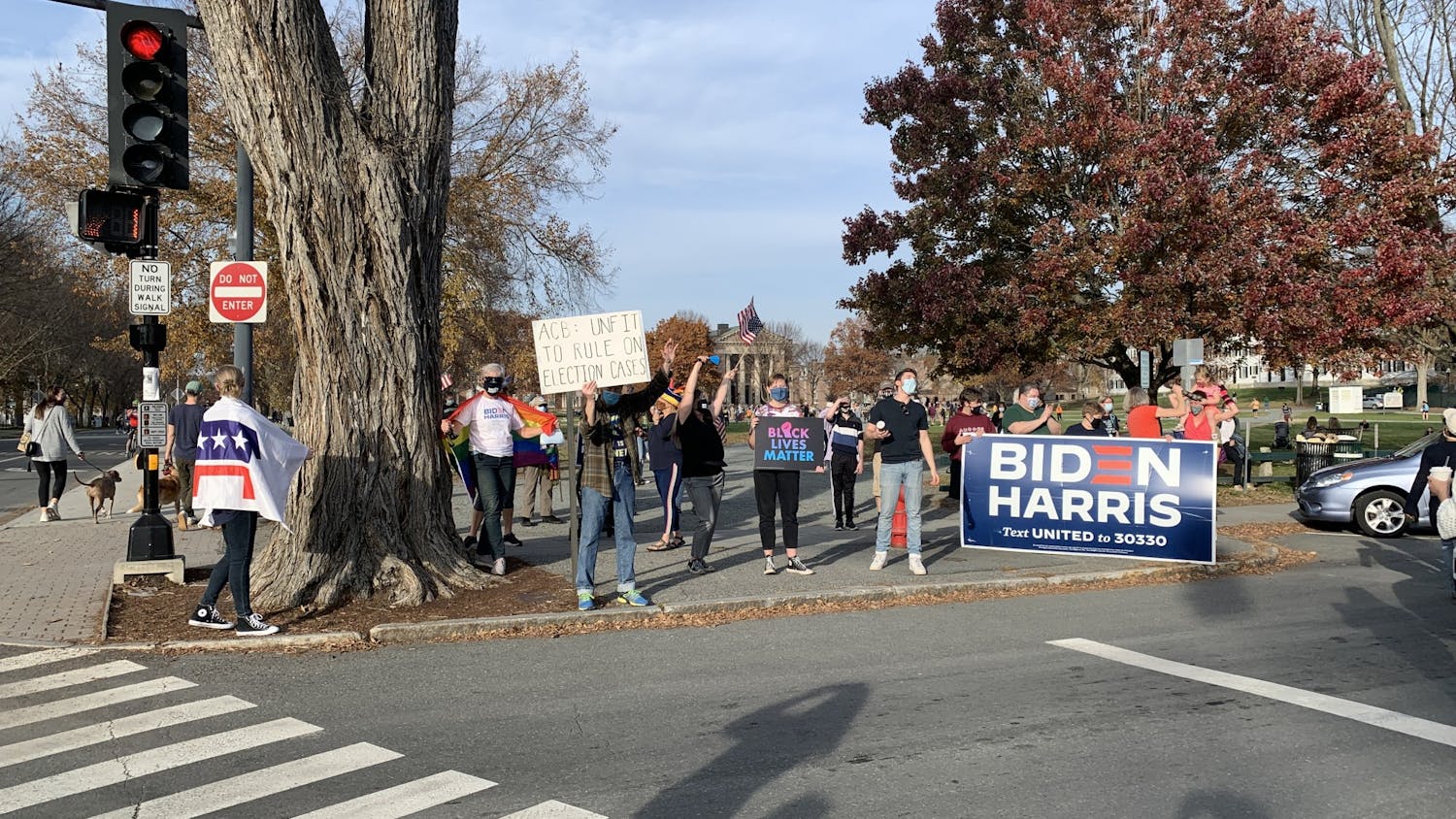After former President Donald Trump’s refusal to accept his electoral loss in November and the storming of the U.S. Capitol on January 6, it’s clear that the American people are deeply divided on the integrity and legitimacy of the electoral process. With six out of ten Republicans still under the impression that widespread voter fraud was responsible for President Joe Biden’s victory — it was not, to be clear — no one ought to think that American democracy is well. Baseless conspiracy theories like these will only lead to more chaos down the road.
There are reforms that can be enacted to increase transparency and voter turnout. Georgia has taken a very different path. In restricting absentee voting, elevating the authority of a partisan state election board and outlawing the distribution of food and water to voters waiting in lines as long as five hours — a vast majority of whom are people of color — Republicans in the Georgia legislature have appealed to the most cynical and anti-democratic tendencies of Trump’s supporters. In short, there now exists a playbook for boosting Republicans’ electoral prospects, one that has been explicitly endorsed by the likes of Mitch McConnell, Trump, and even the RNC. The first domino has already fallen in Georgia and another may soon fall in Texas; now, the real work in mitigating the effects nationwide must begin.
The legislation recently signed by Georgia governor Brian Kemp, a Republican, cannot be dismissed as an anomaly. While Trump may have pushed voting rights as a hot- button political issue, Republicans across the country have spent years fighting to make it harder for eligible citizens to vote. The difference now is that Republican legislatures are moving swiftly in a coordinated effort to codify restrictions on voting in the hopes of regaining political power at the national level in 2022.
It should be obvious to most why the political prospects of conservatives in the United States are linked to voter suppression tactics. For starters, poorer voters, voters of color and elderly and disabled voters often require flexibility in the voting process to have their voices heard. Changes like increasing the number of polling sites, making it easier to request absentee ballots and creating less stringent voter ID policies can provide such flexibility. However, some of these groups — especially voters of color and low-income voters — just so happen to support Democratic candidates and their policies more than Republican ones. Thus, rather than appealing to the interests and values of these groups, Republicans have impinged on the ability of such voters to voice their discontent with conservative policies at the ballot box by making changes like those recently passed in Georgia.
Some might argue that the legislation passed in Georgia has some positive provisions — for instance, the bill does expand access to early voting in some counties and also requires more polling sites. While this may be true, the spirit in which it was enacted cannot be ignored: Republicans moved to change voting rules immediately after Georgia elected Biden and two Democratic senators, one of whom is up for reelection in 2022 Had this bill been passed in the context of President Trump’s reelection, I doubt it would have generated as much controversy as it has. In this light, the “problematic” timing of the bill’s drafting, passage, and enactment into law offers something of an indictment by itself.
Another common argument put forth is that the law ‘equalizes’ absentee and regular voting by requiring an ID for both. This requirement, however, will only make what is supposed to be the most accessible form of voting less so. Absentee ballots are already subject to signature verification and virtually no instances of fraud have been uncovered previously.
Others, still, suggest that the law may actually boost Democratic turnout by provoking outrage. While there is the possibility that an increase in outrage among Democratic voters will increase turnout and negate any benefit for Republicans on the ballot, a political wash still does not correspond to a moral win. The bill passed in Georgia is wrong regardless of any benefit it may afford to a particular party.
I recognize that it would be easiest for those of us who don’t live in so-called red states, those of us with the resources and time to navigate the complexities of voter registration and voting processes and those of us who don’t consider ourselves political junkies to not pay attention to what is happening in Georgia. But in this case, to do the easy thing is to be complicit in the deterioration of American democracy.
The federal government ought to get involved to ensure that this trend of codified voter suppression does not catch fire in any other states. Fortunately, congressional Democrats have already put forth H.R. 1 — the For the People Act — that would both expand voting rights and prevent states from passing the kinds of restrictions that Republicans have thrown their weight behind in Georgia. Additionally, Biden can do his part by appointing defenders of voting rights to the federal courts, giving the judiciary branch the ability to rein in Republicans’ ambitions. Currently, it’s unlikely we can count on ideologically conservative courts to strike down any of these antidemocratic laws.
The shadow of President Trump still looms large in conservative political circles. Unfortunately for the American electorate, this means that voting rights will remain under assault. In a country where elections are administered at the state and local level, it is important to have strong federal standards so that a voter in Georgia does not have to jump through hoops that a voter in California does not. Federal laws could guarantee voters certain protections that they currently lack, such as the ability to vote absentee without an excuse, the ability to vote without an official ID in communities where obtaining IDs can be difficult, and so on. The precedent set in Georgia is a dangerous one — one that offers Republican legislatures elsewhere a roadmap for curtailing voting rights. It’s time for bold action to be taken at the federal level. Otherwise, we run the risk of normalizing — in a modern, post-Jim Crow way — voter suppression tactics for generations to come.



